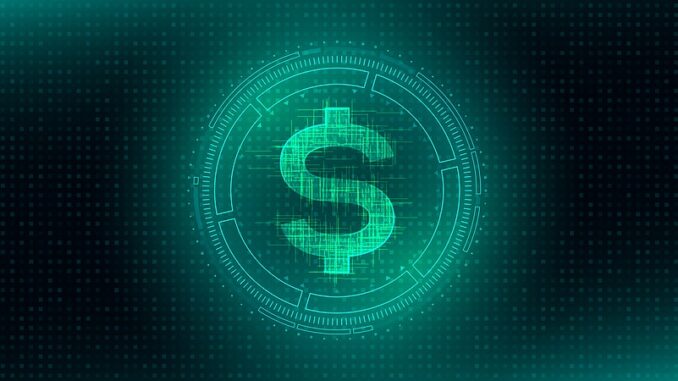
Another US state has taken action in an effort to hinder the implementation of a central bank digital currency (CBDC).
Alabama Governor Kay Ivey signed a bill into law that pushes back against CBDC in a small way that could place some roadblocks in the path toward implementing a digital dollar. Ivey signed the last week.

BYPASS THE CENSORS
Sign up to get unfiltered news delivered straight to your inbox.
You can unsubscribe any time. By subscribing you agree to our Terms of Use
Latest Video
Florida and Indiana have also recently enacted laws banning the use of a central bank digital currency (CBDC) as money in those states.
InfoWars reports: Sen. Dan Roberts sponsored SB330. The new law prohibits government agencies in Alabama from accepting a CBDC as payment and bars the state from participating in any testing of a CBDC by the Federal Reserve.
The bill defines a CBDC as, “A digital currency, a digital medium of exchange, or a digital monetary unit of account issued by the United States Federal Reserve System or a federal agency which is made directly available to a consumer by such entities.”
The Senate passed SB330 by a 32-0 vote. The House approved the measure by a 103-0 vote. With Gov Ivey’s signature on July 16, the law will go into effect Sept. 1.
IN PRACTICE
In the spirit of James Madison’s blueprint in Federalist #46, the enactment of SB330 creates “impediments” to the implementation of a CBDC in Alabama. Madison said “a refusal to cooperate with officers of the union” along with “the embarrassments created by legislative devices,” would “oppose, in any State, difficulties not to be despised.”
Other states have also taken steps to block the use of CBDCs. Florida and Indiana recently enacted laws that ban the use of a central bank digital currency (CBDC) as money in those states.
How such legislation will play out in practice against a CBDC, should the federal government attempt to implement one, is unknown.
Opponents of the legislation generally take the position that states can’t do anything to stop a CBDC, since – according to their view – under the supremacy clause “any federal law on this point will automatically override state law.”
We’ve heard this song and dance on other issues before.
In the ramp-up to the 1996 vote on Proposition 215 in California, voters were repeatedly told that legalization of marijuana, even for limited medical purposes, was a fruitless effort, since, under the supremacy clause, any such state law would be automatically overridden by the Controlled Substances Act of 1970 (CSA). At best, opponents told Californians, the state would end up in a costly, and losing court effort.
But despite those warnings, Californians voted yes, setting in motion the massive state-level movement we see today, where a growing majority of states have legalized what the federal government prohibits. Ultimately, the federal government will likely have to back down, even if just to save face, because it has become impossible to fully enforce its federal prohibition over this massive state and individual resistance.
A similar situation has played out in response to the REAL ID Act of 2005, already 17 years late on full implementation because a significant number of states have decided not to participate, or in some cases, just provide residents with a choice to opt out. There, federal officials have confirmed that state-level roadblocks to implementation are the primary reason for the continuing delays.
“Roadblock” is likely the way this legislation to oppose a CBDC could play out, and it’s part of James Madison’s four-step blueprint for how states can stop federal programs.
But, as can be seen so far with issues like marijuana and the REAL ID Act, whether a federal program is implemented or not ultimately gets down to the number of roadblocks put up by states, and the willingness of the people to participate — or not.
CENTRAL BANK DIGITAL CURRENCIES (CBDC)
Digital currencies exist as virtual banknotes or coins held in a digital wallet on your computer or smartphone. The difference between a central bank (government) digital currency and peer-to-peer electronic cash such as bitcoin is that the value of the digital currency is backed and controlled by the government, just like traditional fiat currency.
Government-issued central bank digital currencies are sold on the promise of providing a safe, convenient, and more secure alternative to physical cash. We’re also told it will help stop dangerous criminals who like the intractability of cash. But there is a darker side – the promise of control.
At the root of the move toward government digital currency is “the war on cash.” The elimination of cash creates the potential for the government to track and even control consumer spending.
Imagine if there was no cash. It would be impossible to hide even the smallest transaction from the government’s eyes. Something as simple as your morning trip to Starbucks wouldn’t be a secret from government officials. As Bloomberg put it in an article published when China launched a digital yuan pilot program in 2020, digital currency “offers China’s authorities a degree of control never possible with physical money.”
The government could even “turn off” an individual’s ability to make purchases. Bloomberg described just how much control a digital currency could give Chinese officials.


